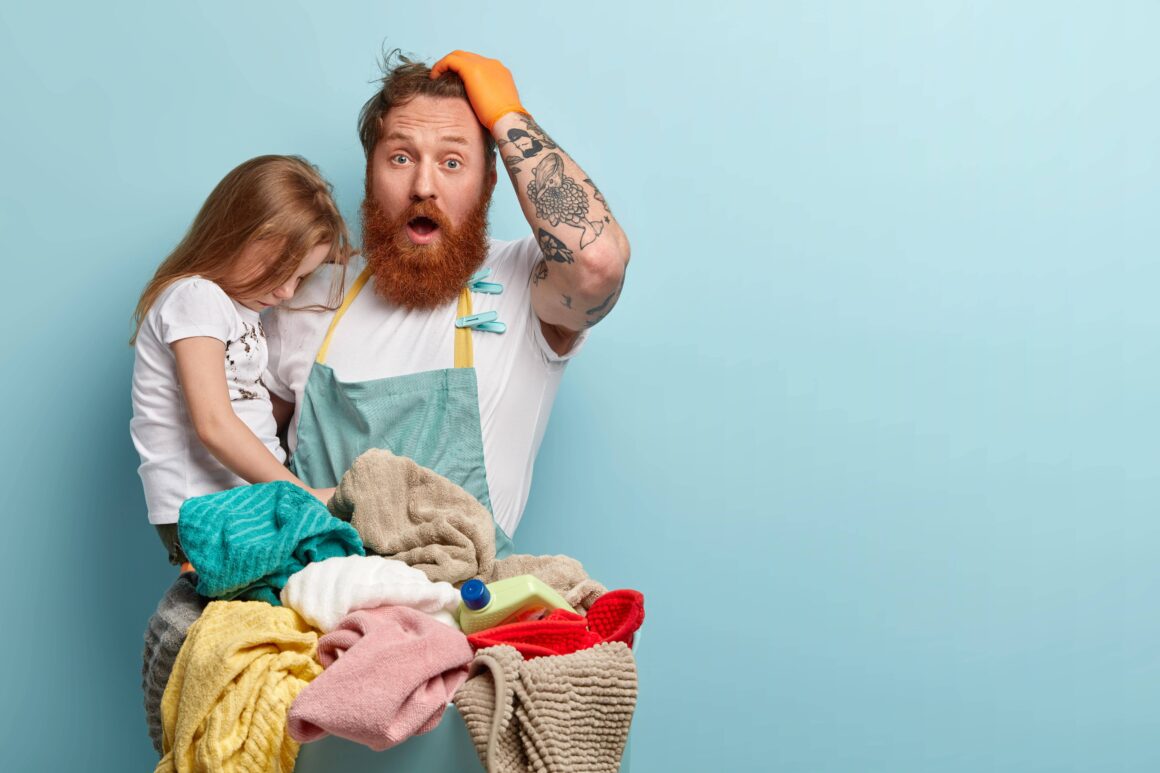
The HSP World Podcast Ep. 15: What Are The Biggest Challenges and Solutions for Highly Sensitive Parents?
The HSP World Podcast is available on iTunes, Google Play, Podbean, and Spotify!
Thomas: Hi and welcome to the HSP World Podcast. I’m one of your hosts, Thomas and your other hosts are;
Robyn: Robyn,
Rayne: and Rayne.
Thomas: We have a special surprise for you today. In a recent episode, we talked about HSP parenting. It’s quite a big topic and we happen to know an expert in this area whom we wanted to ask for insight. So today we’re going to chat about the biggest challenges and solutions for Highly Sensitive parents.
Robyn, would you be so kind as to introduce our guest for today?
Robyn: I sure would. So today we’re going to be speaking with Susanne de Munck Mortier, who is based in Tuscany, Italy, where she runs the International HSP Center and has been doing so for the past five years. So, in addition to being a trained Elementary School Teacher, Susanne has several training qualifications in child, youth, and adult coaching, as well as training specific to HSPs.
Susanne offers a Master Class to Highly Sensitive men and women who experience overwhelm and want to create more peace in their lives. She’s also offering holistic coaching for Highly Sensitive children and teenagers. Susanne often consults with parents of Highly Sensitive children who are struggling at school and works with parents to empower themselves and in turn their children.
She’s also currently writing a book based on how to provide better support and guidance of HSP children in educational systems. So Susanne is in a wonderful position to tell us about Highly Sensitive parents.
Thank you so much for agreeing to be our first expert guest Susanne.
Susanne: Thank you. That was a wonderful introduction.
Robyn: Great.
Susanne: Thank you.
Robyn: As Thomas mentioned, we are hoping to ask for your insight on some of the biggest challenges and solutions for Highly Sensitive parents, and I mean, although we’ll probably primarily focus on parenting, we’ll also talk about anybody in a supportive role for children… aunts, uncles, godparents and so on.
Susanne: Yeah. Yeah. It’s very important.
Rayne: Well, this is a big topic.
Susanne: It is where to start, Rayne?
Rayne: Yeah, where to start? Well, I’d imagine, I mean, I’m not a parent but being highly sensitive and having listened to some parents who are highly sensitive, it seems a lot of them can, just from my kind of lay person perspective, a lot of them can struggle with overwhelm. But I don’t know.
That’s just, that’s just a surface observation. And so what do you think, how do you feel about that, Suzanne? What do you notice?
Susanne: Yeah. Especially during these challenging times overwhelm, it’s very logical. Um, because you might be overwhelmed yourself as a Sensitive parent, but you also take upon the overwhelm of your child. So you are feeling what yourself is also feeling on top of all your, uh, own stimuli that you also have to process, um, in, in a really deep, we know that’s our talent, a deep and profound way.
Yeah. But thank you very much for bringing up this topic. It’s really important because Highly Sensitive parents are raising, present and future at the same time and such important work. And if you want to heal society we really need empowered Sensitive parents. And therefore you start at home by working on yourself as a Sensitive parent, because you are, um, really blessed with that sensory wisdom.
And that’s amazing. And like every character trait, like High Sensitivity, it’s not a disorder, it’s a character trait. It can also have downsides even when you are so blessed with all the sensory wisdom of deep processing and detecting things in an early stage and, um, being able to recognize your child’s overwhelm. So thank you.
Rayne: Excellent. Thank you.
Robyn: Maybe you could tell us, Susanne, what kinds of situations do you, do you encounter, like what kinds of situations do Highly Sensitive parents consult with you about?
Susanne: Well my expertise is in education, helping Highly Sensitive children who struggle in education and besides of course, confidence and fear of failure and anxiety, there are also challenges for the parents who have a Highly Sensitive child who struggles in education, for example, how do you consult with a teacher? How do you advocate for your child? How do you set boundaries with the school staff? For example.
Because Highly Sensitive parents can be really beautiful, selfless, and you, you wish the whole world would just be like these sensitive parents and unfortunately not everyone itself is there. So, you can’t say imbalance, but you will catch my drift…
Rayne: So advocating, advocating for their child is something you’ve noticed Highly Sensitive parents can struggle with Susanne?
Susanne: Yes. Definitely. Yeah.
Rayne: Okay.
Robyn: I saw in one of your descriptions that you believe that there could be, you know, as great a need or a similar need of support for Highly Sensitive children in schools as there is for children on the autistic spectrum. So is it, I mean, I think we’re a bit more familiar now, like in the common consciousness, public consciousness that, you know, children who do have autism, you know, are in need of special support in classrooms and any kind of educational context. Is it really as big for Highly Sensitive kids?
Susanne: Yeah, that’s what I advocate for because there are many training programs and it’s more because it’s a disorder, autism, it’s more acknowledged. And it’s not the same for a High Sensitivity, not at all, because it’s not a disorder and you can’t get some kind of funding yet in schools, and, I just, I just feel that Highly Sensitive children can be seen as much as autistic children in school, and what applies to a Highly Sensitive child also is really good for the whole classroom, that approach. So, yes, it’s a strong belief that I have that we need to advocate just as much as for the autistic children.
Rayne: That’s really making a lot of sense to me you know, seeing as, um, HSP’s, 70% of them, kind of lean more towards the introverted side, with 30% being extroverted. So the public school system, you know, I could, I know for myself, you know, yeah, it was, you know, it was, it was a lot to take in, you know, just a regular school day with, you know, teachers and all the other children and all that kind of thing.
Susanne: Yeah, I remember it. Yeah, you helped me with my research about High Sensitivity in education for my book. Yes, I remember that.
Thomas: It’s interesting because it reminds me of when I went to public high school, I had the good fortune to go to a public high school where the students had a fairly high amount of autonomy. And for the first time, I mean, compared to my elementary schools, for the first time, I felt at ease because I was given so much autonomy in the classes that I were able to take and whatnot. So it’s an interesting connection that I just made.
Susanne: Yes. Yeah. This also something that I mentioned in my masterclass is autonomy and allergic to hierarchy. So exactly what you said Thomas. Yes. Yeah.
Robyn: Could you tell us a little bit about the, the master class that’s geared towards I think it’s geared more towards how to offer more support to Highly Sensitive children in schools. Right?
Susanne: Yeah, exactly. It’s how to support your Sensitive child’s needs in education. So we go, we don’t only talk about High Sensitivity but, um, besides the scientific background, of course, we also discuss that, we go into the practical part. So, uh, we start from the day before school because many children experience a bellyache, headaches, little toe aches all of a sudden, because they know that they have to go to school the next day.
And so we discuss what you can do when they go to sleep, how you can communicate it. And then we go to the morning. And when you drive or bike to school and then arrival at school.
And then we talk about all the subjects of school, how Highly Sensitive children learn and how they react and how you can respond and support them. And then we also talk about what to do during breaks, after school, and when they go on a field trip, for example, or, you know, a school camp, and then when they when come home and they can explode at home after a full day of all those many stimuli.
And then when they go to bed, what you do. So it’s a, um, it’s, it’s a full day with a bonus of how to help your child the day before school.
Robyn: Nice.
Thomas: Yeah, that sounds neat.
Susanne: Thank you.
Robyn: So when focusing a little bit more now on the parents, so if a Highly Sensitive parent comes to you for help, what are maybe some of the questions or the first things you would want to investigate and explore with them? Working towards finding a solution for them?
Susanne: Yeah, these Sensitive parents usually feel overly responsible and have sometimes feelings of guilt because they might feel that, they might feel sometimes they really mentioned the word “weak” because they think or feel that their child is not coping within society because of them being sensitive. That they’re holding their child back because of their sensitivity. And they can often blame themselves and doubts, what if what they’re doing is the right thing?
So having a tendency to, uh, stay too long in things. So also in a conflict, like maybe in school or in a relationship or in a job. And we explore if the situation is still realistic, if there is some mirroring going on between the parents and the child. That could be a trauma, doesn’t always have to be, but it’s really interesting how things shift for a child when you can explore that topic. And if you, when you have the feeling that you might be projecting something onto your child, it, it gives you space to breathe.
Robyn: Okay. So it’s interesting, we’re hearing a lot about feelings of anxiety, guilt, feeling inferior, overthinking, overwhelmed. So, but I feel that, you know, we hear, we do hear these experiences from parents in general, not just the Highly Sensitive ones. In your opinion, Susanne, what is the difference between a Highly Sensitive parent hearing these things, feeling these things and a non-HSP parent?
Is it just the question of the intensity that they feel these things or is there really something very different…?
Susanne: Yeah. Yeah, it goes really deep. It’s really intense. And we tend to, I say we because I’m also a Highly Sensitive parent. But we, um, kind of ruminate about things before deciding what to do. We really want to have an overview of the situation and that takes time, of course, because we’re processing deep and we want to see it from all different perspectives before we decide what to do. What is best.
So, indecisiveness, for example, that’s a huge difference and yeah, like I said, being overly, feeling overly responsible in a way that is not always helping your well-being.
Thomas: Do you find that just by pointing out the tendency to do deep processing, does that help, does that help sometimes just to know that, Oh, I, I am overthinking, I am over-processing this. Do you find that Highly Sensitive people then respond to that knowledge?
Susanne: You mean, uh, when explaining that they’re overthinking or deep processing, they do. Yeah. They do recognize that. Definitely.
And I also, I show them with visuals how that works for a Highly Sensitive person and especially, of course also how a Highly Sensitive child thinks and learns and communicates, because we talk in a different way, we communicate in a different way, and we eat in a different way and think, play, eat. It’s all. Uh, um, it’s really nice if, if you can frame it for a Highly Sensitive person and from there give an overview and frame that. So then explore if is this situation still realistic?
Is it, is this really what is going on or that you’re ruminating about it for so long and then maybe created self-doubt or anxiety because you ruminated about it for so long. Is there, is that what you meant Thomas?
Thomas: Yeah, no, that’s very helpful. And I’m now thinking about the eating part. How we are different in eating. I’m going to have to ponder that for a little bit. I do have a question though.
Are you ever approached and do you ever coach parents-to-be, in other words, parents that are going to be having their first child and, you know, and if so, what kind of questions might they be asking?
Robyn: Great question.
Susanne: Yeah, I love that. Yeah. There should be more, um, definitely more attention for that. Yes, well I work with, uh, also with Highly Sensitive adults and when they don’t have children yet, or they don’t want to, of course the topic also is also discussed. We…, well what I noticed is that many adults are really doubting if they want.
And that’s beautiful also about sensitive adults that they doubting if they want to put a child nowadays on this earth. And I know that sounds maybe a bit blunt me saying this in a, within a podcast about sensitive parents, but them having that clarity already helps them if they want to dive deeper or take the decision with their partner.
Robyn: That’s a, that’s a great point, actually. And I think it is relevant to the discussion on HSP parents. I know, uh, you know, for, for my own reflections on this topic it’s definitely something that I’ve considered, uh, you know, I have, both of my parents were Highly Sensitive, are Highly Sensitive, but as I grew up with them they were Highly Sensitive and, yeah, I saw that it can be a very intense experience for everybody.
So it gives me pause and think Hmm, you know, to think, okay, if I do have a choice in this how will I make that choice? You know, what’s going to be, again, you don’t, we don’t always have choice over it, but if we do then, you know, how, what would be a positive choice here for, for myself as a Highly Sensitive person, for my partner and for the child, whether or not they’re sensitive.
So, yeah, it’s difficult. Do you, do you go through that conversation sometimes with your clients as well?
Susanne: Yeah. Yeah, because, um, well it’s, they take the decision, but there’s often family or, um, partners who think you should do it differently. According this. According to norm that society sets and yeah, it it’s, it gives a lot of pressure. And when you, of course, even when you decide not to, there’s still a period or phase of grief that you’re not having a child.
It’s not that they don’t want a child it’s because they, uh, think about how the world is now acting and, um, yeah. Feel how their child is going to find their way, especially when they’re sensitive in, within the world.
Thomas: My, my wife and I had made the decision very early that we only wanted one child. And, and even so when, when our daughter was born, the amount of overwhelm and in particular, because I like to say, you know, they don’t come with a manual, right? They don’t, nobody really tells you, like, this is what parenting is about.
You know, you, you, in many ways, you discover it on your own and, and you ask around, you read some books, whatever, but still it’s a very steep learning curve and it’s overwhelming and there’s just a lot that goes through your mind in terms of, you know, am I really adequate? Am I going to be a good parent? All that stuff comes up very quickly. So.
Susanne: Yeah. Thank you for sharing. Yeah, definitely.
Rayne: Yeah. And I don’t know how, I’m not sure. Um, but it’s just a point I thought it was worth making… I think to some extent, um, when people learn they have the HSP trait, they just, you know, it’s a big sigh of relief. It’s like, Oh, that’s what it is, you know? Kind of, you know?
But sometimes I think, you know, they can, the person that learns they have the trait can stop there with just that information, and not really understand, the degree to which, and of course having the HSP Trait is on a, is on a spectrum, um, so, you know, one person can have it to a greater degree than another person, and that’s not, uh, a comparison thing. That’s just something for the person to, to know to what degree they have it and which sensitivities are higher for them and that type of thing.
But I wonder sometimes how, how often people who, who are parents and they have the Highly Sensitive Trait, if they, if they, you know, really realize to, you know, to what a great extent, you know, having the trait affects themselves, as well as, you know, their children or child, whether that child is Highly Sensitive or not. I don’t, I don’t know. It’s just a question I wondered about.
Susanne: Yeah. Yeah. Yeah. I do think that’s true because before you have children, you think you will do it in a certain way and not like your parents and you have that beautiful dream. And when you’re a parent, of course you, you, you did not take in account that you will be overwhelmed and in that extent or exhausted. You pleaded that sometimes she does.
You’re too tired to just set one foot in front of the other when you haven’t slept for months. And, um, that’s, that’s what we often don’t mention, but that’s reality, for some, and when I, uh, for example, Elaine Aron mentioned in her book that you need to have more support more and more, uh, like a, a safety net.
And when you are then a Highly Sensitive parent yourself and you think, Oh, I’m, I’m going to do this all alone, but then the doubt comes up and the guilt. Sometimes when you think, Oh you never considered that you would feel so guilty when you leave the house, even when it’s 10 meters away.
And that’s, that’s so, that’s so different than before you, you were a parent. Like my children are now 19 and 16 and it’s a wonderful journey. But I did not expect that I would react in a certain way that I could never have imagined before, that I would be so incredibly connected. That I could feel so guilty at times while I did everything in my power. I did.
But at the time you think it’s never enough, it’s just not, um. So, uh, yeah, those are really new feelings. They’re wonderful, but they’re new. So it’s something that it’s beautiful if you can share that within your own support network.
Rayne: So support network, meaning grandparents and, um, you know, good friends, babysitters, um…
Susanne: Yes. Yeah. Aunts and Uncles are great. Yes. Yeah. It’s really important, but because we feel overly responsible at times, we often don’t do that because we are ashamed that other people might think that we are not doing the best we can. Yeah, we have that sort of survival strategy where we think we should doing it all on our own, and no one can do it better, at times. So we won’t accept all the support sometimes.
Rayne: Excellent.
Thomas: What I’m liking about what I’m hearing the way that you structure your master class, that you, it sounds to me like you’re emphasizing a lot of the positive qualities of being Highly Sensitive. And I think sometimes, HSPs, like Rayne, what you were saying, you know, HSPs learn that they have the Trait, but they don’t necessarily then go to the next step and understand the positive aspects of it.
Susanne: Yeah. Yeah. And that is the goal of my center. That’s, I don’t know where it started but sometimes High Sensitivity really has a negative, uh, how do you say conversation? Yeah. And that’s such a pity. I cannot identify with that. Um, it has downside like every other character trait, it has downsides. But it’s when you really feel empowered, it’s, it brings so much more to this world.
We are here for a reason. And I truly, truly believe that, that we are here for a reason. And, and also to leave a legacy within others every day. You do it every day. You leave your legacy when you talk to someone, even intentionally thinking about someone and that’s, that’s our purpose to find that balance.
So, yeah. How can that be? That’s that’s not in my, my system.
Thomas: Right.
Robyn: Cool.
Thomas: Wow. Thank you Susanne for today’s conversation. I’m so delighted to hear what you’re saying about the positive aspects and as a parent myself, I really appreciate the expertise that you bring to the topic. So thank you.
Susanne: Yeah. Thank you. Thank all of you for sharing your view, and your experience, and thank you for this opportunity. It’s wonderful to work with amazing Sensitive colleagues.
Rayne: Absolutely. Thank you, Susanne. I think it’s going to be, um, I think it’s going to be a big help to the Highly Sensitive parents out there who may be struggling or who are thinking of becoming parents or who already are parents. It’s really nice to speak with someone who has some experience in this area. So thank you.
Susanne: You’re welcome.
Robyn: Yeah, so thank you everybody and thank you to our listeners. If you would like to contact Susanne or find out more about her work you can find her online at International HSP Center.
So, I hope you enjoyed today’s episode. Please join us for next one where we’ll be having another interesting HSP conversation, and to any Highly Sensitives out there who have a burning HSP-related question, big or small, we invite you to ask it on The HSP World Podcast.
Just email info@hsp.world.
Pic credit via wayhomestudio
Music credit: Intro and Outro music from the YouTube Music Library. Song is Clover 3.





